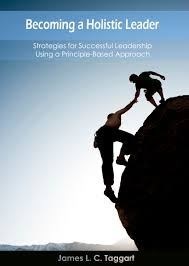Rethinking Teams and Teamwork: Getting Over the Guilt Complex

Teams, teams, teams! This has become the refrain since the early nineties when the literature on teams and teamwork exploded. Everyone needed to be part of a team, however small the organization. To most people working in organizations, private and public, the reflex is to refer to one’s ‘team’ when discussing co-workers and work issues. What has happened over time is that the use of the word ‘team’ has greatly diluted what teams and teamwork are really about. And along the way, the cult of teamwork has created scepticism and mistrust – and even guilt – among employees.
Before you conclude that I’m anti-teamwork, I want to point out that in addition to having spent many years being part of a variety of teams that I’ve also designed and delivered dozens of team-building workshops. I’m all for teamwork, but I’m even more keen on collaboration, which is a different beast from being part of an intact team.
Therefore, my purpose here is to do something I occasionally like to do: rock the boat a little and challenge the conventional wisdom that has emerged during the past two decades. My ultimate aim is to widen your perspective on what constitutes teamwork, that it’s okay to enjoy working independently, and that ‘teamwork’ in reality encompasses a broad range of ways in which people come together to accomplish specific objectives.
My own experiences in being a part of teams and various assortments of work groups extend back over 35 years when I first entered the job market. When teams became the method of choice for how work should be organized in the early nineties, it was nothing particularly new to me since that was how I had been working for many years in a service branch. But I recall quite clearly the stress that some of my co-workers in other parts of my office underwent.

So what am I talking about–working independently in the face of the omnipresent need for teamwork? It’s essential that one understand what teamwork entails before defaulting to the mantra of teams, teams, teams! As much as a long list of writers has enunciated the characteristics and traits of what constitutes teamwork, at its core are two necessary conditions:
1. Shared common purpose for the team,
2. Interdependency of work among the members.
Remember we talked about this at the beginning of my series on teamwork.
Unless both these conditions are present, one cannot have a team. Yes, there are a number of important features of teamwork, including:
• Size of the team,
• Effective communication,
• Performance goals,
• Respect for one another,
• Mutual accountability,
• Celebrating successes
• Socializing and having fun.
As organizations continue to evolve as a consequence of socio-economic changes, technology, demographics, global markets, virtual distributed work, etc., so too must their internal structures change. Work still needs to get done, regardless of external and internal changes, and sometimes this is by using formal (intact) teams or some other forms of bringing people together.
Most of us have probably been part of working groups at some point in our careers. I spent a significant amount of time working in this manner. They can be very effective at addressing specific problems and issues with prescribed time durations. However, it’s important to remember that working groups exist to share information, delegate tasks and make decisions. The members of the working group take responsibility for their own results. The focus, therefore, is on individual performance. Consequently, the output of the working group is the sum of the individual members’ contributions. The so-called synergistic effect of teamwork doesn’t take hold in this setting.
When it’s necessary to form a team because the conditions call for this type of work arrangement, the challenge to create effective teamwork can be quite daunting. It’s important, therefore, to understand that teams typically go through four main stages (as we discussed earlier in this series):
1. Forming : This occurs when people are first brought together to form a team. They begin to get to know one another and set out to establish the appropriate rules and behaviours that will govern the team. The members look to the team leader for direction. Interactions among the members are somewhat formal and polite during this phase.
2. Storming: The members are getting comfortable with one another. They start disagreeing and challenging each other. If this stage is missed, the team won’t be as strong because it hasn’t yet learned how to deal with conflict.
3. Norming: The members know each other and have developed rules of conduct. They want the team to be successful. Trust is being established, and the members are having fun.
4. Performing : In this final stage, the team has a clear, common purpose and direction. The members appreciate their diversity and are building on it. Synergy is taking hold.

Given the amount of time, effort and nurturing that the creation of a truly effective team requires, it’s not surprising when you hear cynical comments about teams. Publicly in organizations employees will say what management wants to hear. However, with co-workers in private another conversation is being held.
One expert on teams who rocks the boat is J. Richard Hackman, who has been consulted by numerous organizations over the years on work design, leadership development, and team and group performance. His research runs counter to the popular press, finding that work teams are found clustered at both ends of the organizational effectiveness continuum. While some teams succeed well, others flounder. Underlying this is how management approaches work group design.
Here are some key points to retain for consideration when thinking about forming teams.
First, management should not push teamwork when certain tasks can be done more effectively by individuals. One good example is preparing reports, which Hackman suggests is better done by one person on behalf of the group. My experience in report writing is aligned with this view. Trying to employ a team to write a report is both inefficient and frustrating (if not ludicrous), with the result being an inferior product.
A second example, but in the area of executive leadership, is the creation of mission and vision statements. While a democratic approach may appear appropriate, creating a vision statement with a team of managers can be hugely time consuming. I’ve been there, done that, and finally learned that having the CEO, president or the principal leader of the organization write a draft of a vision is much preferred. After all, that’s why these people are paid the big bucks!
Second, when a group of employees needs to be brought together to address an organizational issue, it’s important to define it for what it is (e.g., working group, planning committee) and manage it accordingly. If teamwork is required (remember the two features of interdependency and shared purpose), then management needs to ensure that the necessary resources are available to help the team develop.
Third, when teamwork is determined as the appropriate route the level of authority for the team must be decided. And tied tightly to this are participative management and clearly defined objectives and timeframes. During my working career in the public and private sectors, I saw teams flounder or go off the rails because management didn’t clearly express its expectations at the outset. In the face of uncertainty and weak managerial oversight teams run the risk of going renegade, producing unnecessary grief for everyone.
Fourth, depending on the maturity of the team and its members (i.e., past experience) the structure supporting it will need varying attention. For example, what should be the size of the team? What are the training needs? Are special physical resources required, as well as budgets? How is leadership within the team to be shared? And how should team learning and knowledge generation be managed?
Fifth, few writers on teamwork address the interdependency among teams. This is a critical aspect of using teams within organizations, but one that is often overlooked. And the issue gains even more significance when self-directed teams are used. Some of my past work in delivering team-building workshops included self-directed teams.
Without adequate managerial oversight, the danger exists of teams forming their own exclusive walls around themselves, driven by such motives as unique identity and controlling information. When this occurs teamwork at the organizational level begins to break down. Product and service may suffer as the guiding light of organizational mission and vision becomes dimmer in the eyes of employees.

As organizations in the public and private sectors adapt to the pressures and dynamics of globalization and technological change, one key aspect will be how they approach work design. When teams are determined to be the most effective way to accomplish certain objectives, they will increasingly be virtual in nature. The use of telework, while being applied currently with varied success in the workforce, will add new challenges for managers. And of particular significance is the growing use of contingent workers who have no specific affinity for organizations: they move in and out based on organizational needs.
Finally, a rapidly emerging issue that is shaking up organizations is Generation Y (also referred to as Millennials, from age 19 to 36). Gen Y is especially technologically savvy and possesses a high level of self-confidence. Their approach to work is more fluid, much less hierarchical and virtual-oriented through the use of technology. A major challenge for those in senior managerial positions will be how to organize work efficiently. Teamwork will undoubtedly continue to be an integral part of how organizations function, but the conventional assumption of what constitutes teamwork will increasingly be challenged.
My suggestion to those who are feeling stressed or threatened as a result of the turbulence we’re witnessing in organizations is to follow these simple words: “Be open to outcome, not attached to it.” Maintaining an open mind will enable you to see the opportunities that are resident in change and to adapt much faster and more easily.
To wrap up, I apologize if I’ve caused you any undue frustration or stress in presenting some opposing views to teamwork, after taking you through this series. But with that said, there’s no one right or clear answer to the many inter-connected challenges facing us. What you’ve read over the past several weeks are the views of just one human being, who’s still trying to figure it all out at age 62. Keep learning and, especially, an open mind.
To be conscious that you are ignorant of the facts is a great step to knowledge.
— Benjamin Disraeli
___________________________________________________________________________________________________

Articles from Jim Taggart
View blog
The human race is an odd species. Adaptive to immediate threats and catastrophes, we as humans have ...

Many years ago, I watched Eco-Challenge 2000 on the Discovery Channel (a show that ran from 1995 to ...

I am your servant. I do not come to you as a leader, as one above others. · When you read these word ...
You may be interested in these jobs
-
construction helper
Found in: Talent CA 2 C2 - 2 days ago
Raman Construction Ltd. Delta, CanadaEducation: No degree, certificate or diploma · Experience: Will train · Work site environment · Dusty · Tasks · Load, unload and transport construction materials · Mix, pour and spread materials such as concrete and asphalt · Clean and pile salvaged materials · Perform routine ma ...
-
bookkeeper
Found in: Talent CA 2 C2 - 2 days ago
National Canada Immigration 2020 Ltd. Surrey, CanadaEducation: Secondary (high) school graduation certificate · Experience: 1 to less than 7 months · Tasks · Calculate and prepare cheques for payroll · Keep financial records and establish, maintain and balance various accounts using manual and computerized bookkeeping systems · Ma ...
-
construction helper
Found in: Talent CA 2 C2 - 3 days ago
Kantasa Construction Ltd. Surrey, CanadaEducation: · Expérience: · Education · No degree, certificate or diploma · Work site environment · Outdoors · At heights · Dusty · Work setting · Various locations · Tasks · Load, unload and transport construction materials · Erect and dismantle concrete forms, scaffolding, ram ...



Comments